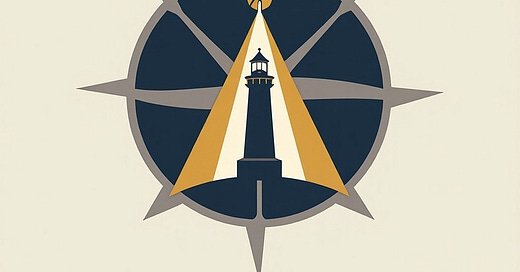We like to believe memory is permanent. But memory fades, not out of carelessness, but often for survival.
When pain is deep, when trauma is collective, the mind blurs the sharp edges. This is true of individuals, and of nations.
But there’s a cost.
In 2020, a global pandemic upended our lives. In 2021, a violent breach of the U.S. Capitol attempted to overturn an election. And yet, by 2024, tens of millions of voters seemed to have forgotten. Or perhaps, chose to forget. Or maybe we were trained not to care. Not everyone just enough of us.
Is this historical amnesia? Or were we simply conditioned to forget, or care?
Memory isn't just what we remember, it’s how we remember. And more importantly, it’s who remembers with us. When shared memory dissolves, shared reality begins to crack. The conversation ends. And what takes its place is not truth, but performance.
Some scars run deep. But some wounds are numbed by repetition, until the story is no longer about what happened, but about who controls the telling.
We forget together because we stopped remembering together.
The price? Every generation must relearn the hard lessons their parents tried to forget.
Wars repeat.
Divisions return.
The ghosts of injustice reawaken.
And still we ask, how could we let it happen again?
Memory Gaps and Civic Amnesia
Some own a car. Some own land, a house. But do we truly own our thoughts?
Not unless we make them ours.
Ownership means responsibility. But thought without reflection is reaction not ownership.
To claim ownership over thought, we must:
Accept that information can mislead us.
Question what comforts us.
Walk away from sources that break our trust.
Deny those who lie and attempt to manipulate with half truths.
Identify bias in ourselves, do we trust certain voices more because of gender? Race? Familiarity?
True civic memory requires more than knowledge. It requires conversation. Because remembering together matters.
When we say “never again,” do we mean it? Or have those words become just another bumper sticker, softened by time, dulled by repetition?
Before the 2024 election, a young man, slightly tipsy, declared:
“I’m voting for Trump because I want to see what happens.”
He didn’t say it in anger. He said it with the anticipation of someone about to tune in to a favorite show.
And in that moment, I realized: he knew his vote could cause pain. He expected it to. He suspected he could just sit back, watch the conflict, the collapse, and the test of the republic unfold.
As if democracy were entertainment.
As if the stakes were not real.
As if broken lives and shattered institutions were the price of admission.
When our truths die in silence, or are silenced by noise, we abandon the stage to whoever lies the loudest.
Truth must reclaim the story.
Together, truth can rise.
We will stumble. We may forget.
But we are resilient, flexible by design.
This is us.






Share this post